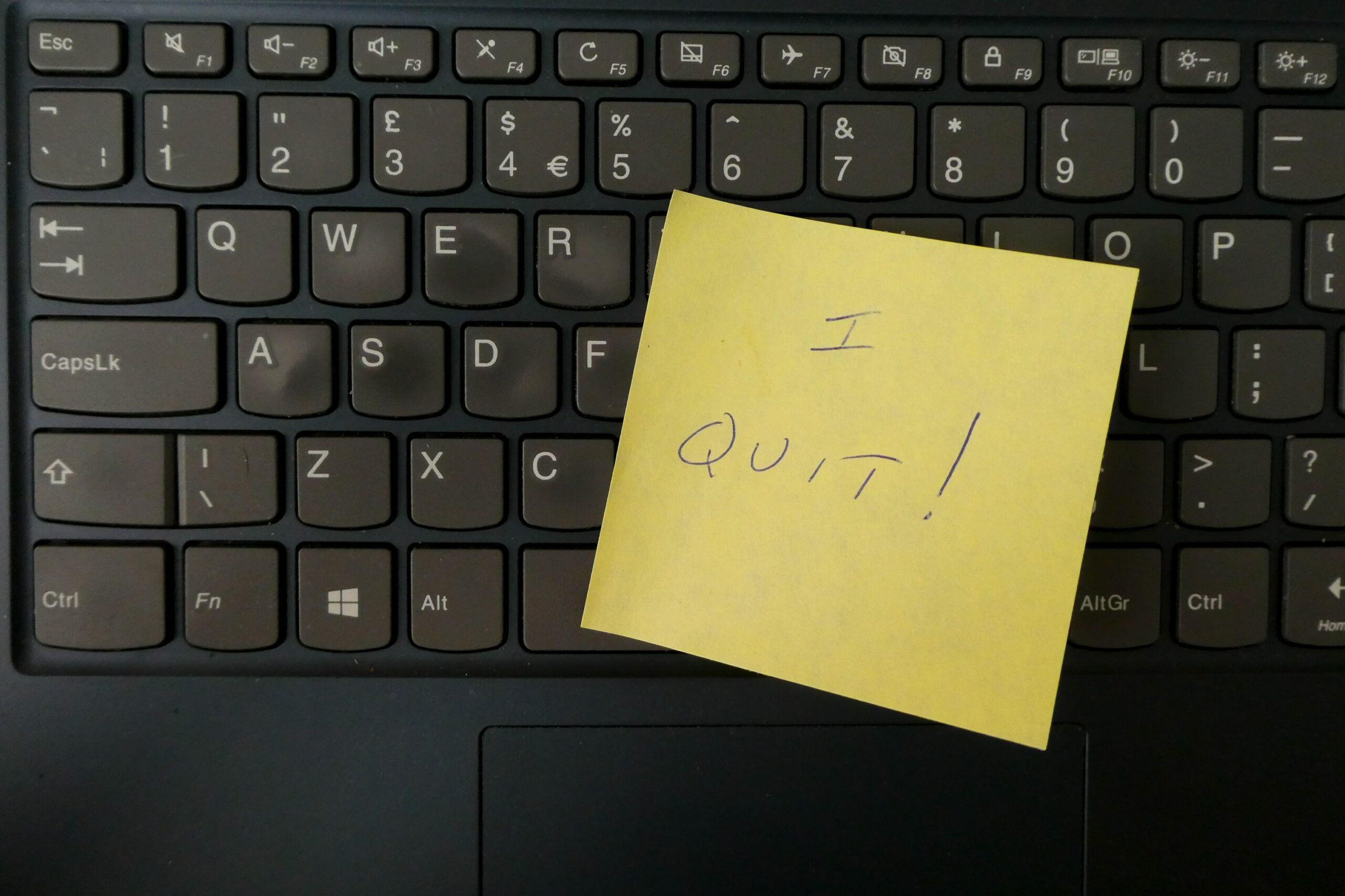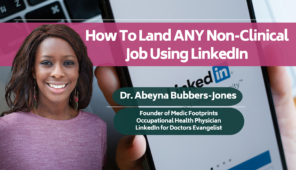How to resign from the NHS as a doctor
The doctors guide to how you can resign your NHS job and what to do with you GMC number

The Doctor’s Guide on how to resign from your NHS job, including what to do with your GMC number
When I came to the decision to resign my NHS job I was surprised by the scarcity of information on how to go about it.
There’s a plethora on how to get into the NHS, how to stay in the system, keep your head down and get on with it kind of stuff, but information on how to find the green exit sign and walk out seemed elusive.
We recently interviewed Dr Loretta Ihonor on our Disrupting Doctors Careers podcast ‘How Do You Quit Medicine’, she mentioned to us that when she wanted to resign her job, her supervisor made an ill-disposed request for her to undergo a psychiatric evaluation.
While I didn’t have to go through that experience, part of me felt that when I resign I’d be walking off a cliff and falling into the abyss because I didn’t know what I’m supposed to do.
Us doctors always want to know what we should be doing and how to go about it, hence I felt the world of Medics needs an article like this.
I’m pleased to report the world out there is a beautiful place and you won’t be falling into the abyss!
Here are the 8 things you need to know about before resigning your job in the NHS as a doctor.
1. Timing your resignation
Like they say; timing is everything.
This is a big decision that’s best not done in the heat of the moment, or during a stressful time.
I strongly recommend you seek coaching to uncover the push and pull factors that are making you want to leave.
We have highly qualified Medic Footprints approved career and life coaches that you can seek coaching from.
2. Who needs to know?
Once you’re satisfied with your decision to resign then it’s time to let your line manager know of your intentions.
That could be your educational supervisor or your clinical director depending on the nature of your role.
Don’t leave it for them to find out on the day you send the email resignation. It’s not a good look!
3. What to check before you put the resignation in?
Check your contract for the minimum notice period you have to serve once your resignation has been received and accepted.
You can negotiate your notice period down or you can submit your resignation and ask for the notice period to start on a future date
You can book leave during your notice period however note that your leave will be pro-rated to when you’re leaving your job in the fiscal year.
4. What to write in the resignation letter/email?
You don’t need to elaborate on the reasons for the resignation in your email. It will be bounced around a handful of mid level managers and HR personnel you may not be comfortable sharing the details with.

You do need to:
- Clearly state your intention of resignation (no wishy washy language).
- State the role you are resigning from
- What notice period you can serve and what your last day will be (this is where you negotiate it if you haven’t already).
- Mention how you plan to hand over your duties (this is more for consultants who have supervisor roles or ongoing projects).
- Ask if there’s anything else you can do to smooth the transition.
- Ask for the email to be acknowledged
You might be wanting to do a dramatic storm out of the room, slam the door behind you kind of resignation.
Between me and you it can taste as sweet as a melt-in-your-mouth chocolate truffle
however I’d advise you to restrain from doing that, breathe and leave with grace.

5. Your GMC licence & revalidation
You have a few of options here:
a. Keep your licence to practice & remain on the register/performers list.
This option is best suited for when you wish to continue your clinical practice elsewhere. So you’re simply leaving an employer rather than the whole profession.
b. Relinquish your licence to practice & remain on the register/performers list.
This will allow you to provide proof of Good Standing however you wont be able to practice medicine in the UK.
There are some industry domains or some companies that require you to maintain a good standing with the GMC while you work with them, so this is a good option to go for.
Remaining on the register without a license would cost less in fees, however keep in mind that you won’t be able to see patients and provide clinical care.
c. Go cold turkey, i.e. giving up both your registration and your licence to practice.
Your status on the register/performer’s list will change to ‘Not registered – Having relinquished registration’ and you will not be able to practice medicine in the UK.
When you’ve decided enough is enough and you no longer wish to practice medicine. ie you’re leaving the job and the whole profession and you are certain of your decision then relinquish it all and let it go!
By all means you can reapply and come back on the register in the future should your plans change. The GMC has a detailed guide on this which you can read on here

6. The Royal Colleges
You can continue paying the fees, using the post-nominal and use the other membership benefits.
Some colleges would have reduced fees for non practicing doctors, so it’s worth checking.
The other option is to notify the colleges, if you are a member, of your resignation and your intentions on not continuing to pay your membership fees.
Don’t just cancel the direct debits and disappear, it’s not a professional move.
They are pretty quick to reply and can advise you on how to restart the membership in the future should you wish to do so.
7. Professional Memberships
Similarly for memberships of the BMA, indemnity unions etc. one option is to notify them of cancelling your subscription.
You can negotiate a refund for the reminder of the year that you won’t be needing.
The other option is to check if they have a ‘break’ policy. That means they can continue to cover you for Good Samaritan Acts but not for paid clinical practice.
The ‘break’ is usually free and runs for a number of months or years depending on the union. It’s worth asking about.
8. What’s next?
You’ve done it. It’s a bold move and you are now moving on to greener pastures.
You’re standing there rubbing your wrists after the shackles have come off and wondering (or maybe not) what the next move is.
Take stock of that moment and celebrate yourself.
Things to think about and consider at this stage:
- Taking some time out to refocus on your priorities
- Working with a career coach to get clarity on the next steps for you
- Getting advice from a mentor – our MF Premium members benefit from two mentorship calls a year with our Medic Footprints Team doctors
There’s a wide range of opportunities out there for you in and outwith healthcare. You can dive into private work, management consultancy, non-profit and charity work, media production, working in industries such as pharma or health tech or setting yourself up as an independent consultant.
The world is your oyster and you get to decide how to run it!
Ola Abbas
Latest posts by Ola Abbas (see all)
- How to resign from the NHS as a doctor - 7th December 2022
